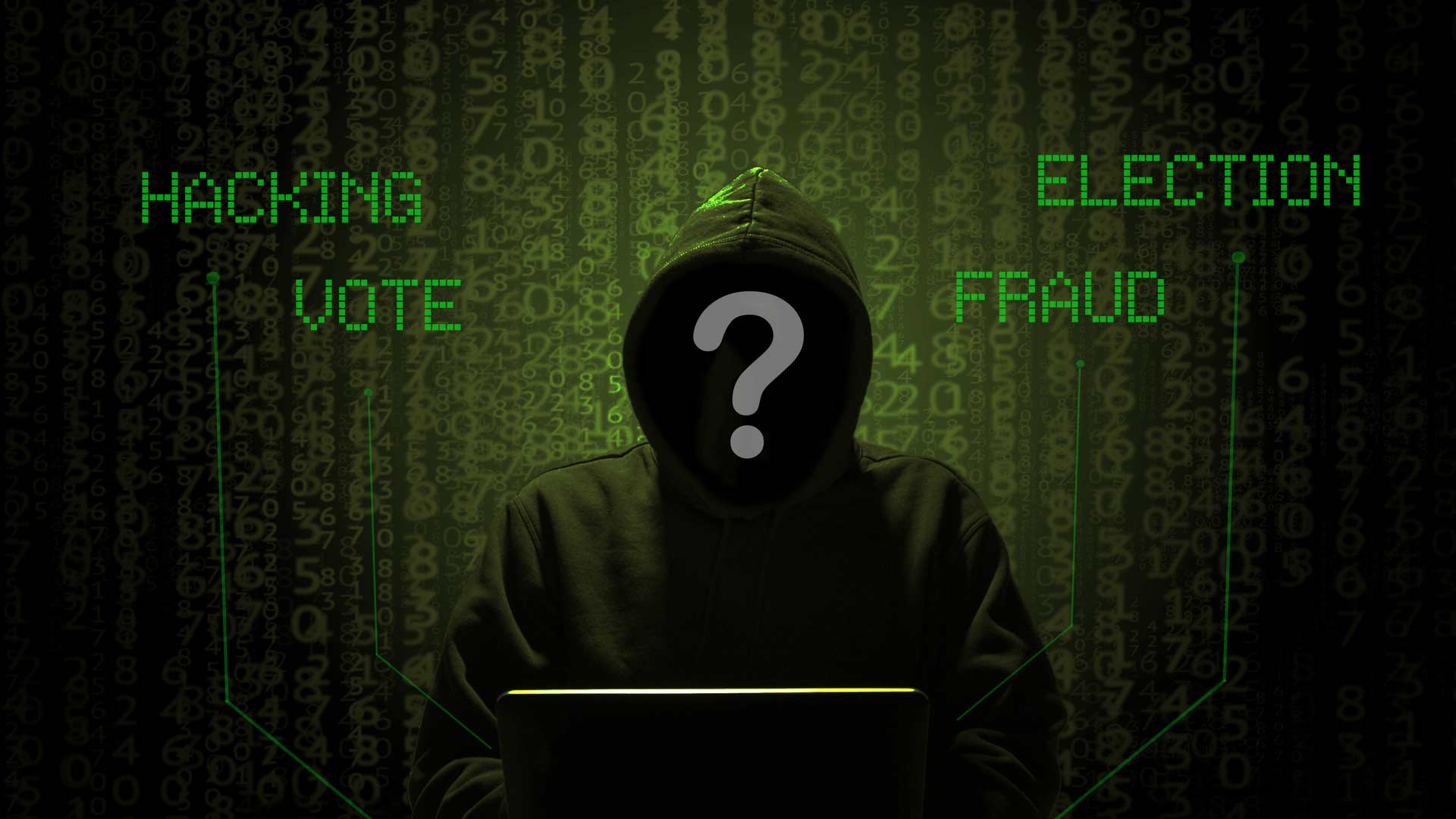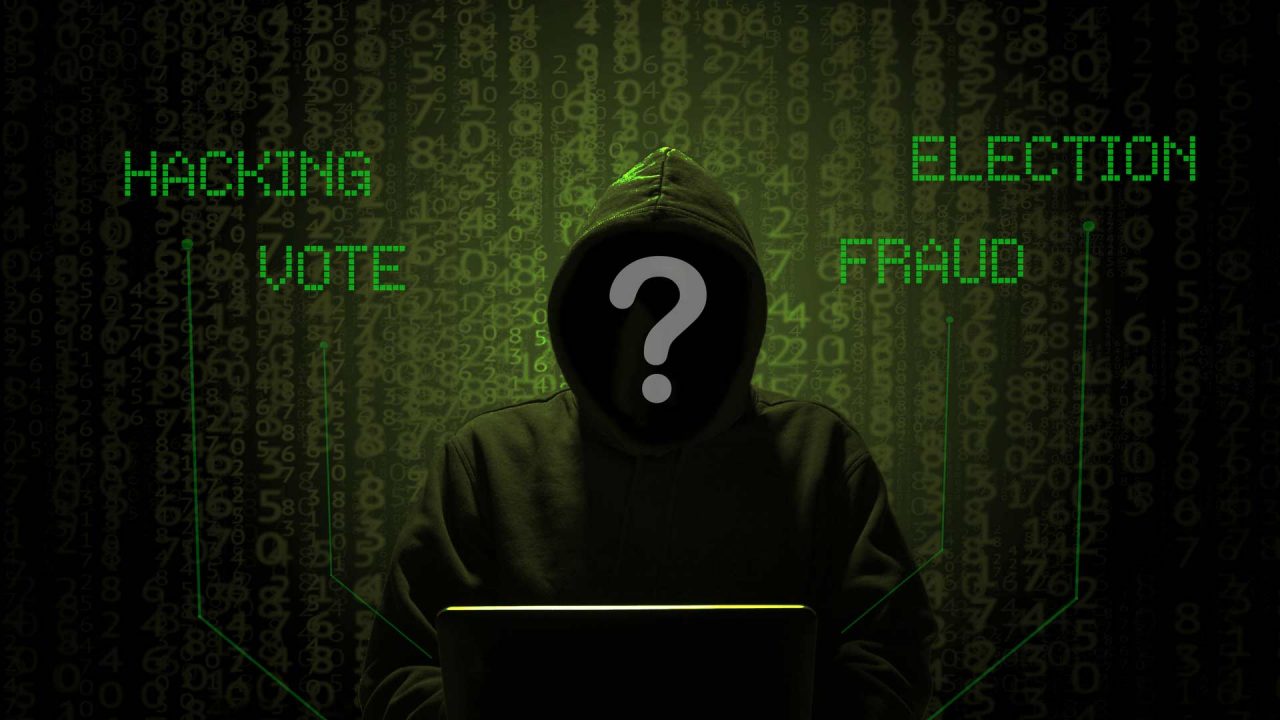
Alaska’s election system has been plagued by bloated voter rolls for years. The mounting problem is rife for election fraud, especially with regards to absentee voting.
The difficulties are perhaps most clearly illustrated when contrasting Alaska’s declining population with the state’s burgeoning voter registration rolls. According to the Alaska Dept. of Labor and Workforce Development, the past five years have seen a steady decline in the state’s overall population – dropping from 740,637 people in 2016 to just 728,903 in 2020. That’s a net loss of 11,734 people.
During this same time period, however, the overall number of registered voters has ballooned by 66,976 – growing from 528,671 in 2016 to 595,647 in 2020.
“From 2016 to 2020, Alaska lost 11,734 citizens but gained 66,976 new voters.”
According to information on the Alaska Division of Elections website, during a seven month stretch leading up to the 2020 general election, from the beginning of the COVID lockdown in March through October, Alaska’s voter rolls jumped by 23,731 voters. Additionally, according to a voter data base from the state, 36,550 new voter registrations were added for the calendar year 2020. Many Alaskans question these numbers given there was a global pandemic in which Alaska’s population influx was impacted by the Canadian border shut down, heightened global travel restrictions and a reduction in military personnel transfers.
In attempting to explain how a state in steady decline has skyrocketing voter registration growth, Lt. Gov. Kevin Meyers said Alaska is unique in that it has a high population turnover each year. This is true. Fueled by military transfers and employment changes, between 2016 and 2020, Alaska has seen 147,729 new people enter the state, and 182,042 depart.
People who have moved away more than three years ago, and who never intend to return, can still cast Alaska ballots.
Since Alaskans are allowed to remain on the state’s voter rolls for up to four years after departing the state, this massive population shift creates serious problems when trying to determine who is actually a resident and therefore legally eligible to vote. It also means there are tens of thousands of people still on the state’s voter rolls who no longer live or work in Alaska, many never to return.
Alaska’s Lt. Gov. Kevin Meyer has acknowledged this growing problem. A few weeks after the 2020 general election he posted answers to a number of questions he had received about the security and integrity of the recent election.
Meyer explained that Alaska and federal law allows voters to remain registered in the state as they “intend to return.” The state, however, has no way to tell if a voter “intends to return.” According to Meyer, “when people move out of state and don’t notify us, they stay on the rolls for as many as four years, further expanding our voter rolls.” He also noted that, “Any registered Alaskan voter, regardless of location, can vote in our elections.”
Nefarious actors could request that ballots be sent to them so long as they had enough of the voter’s information on hand to request their ballot.
That means people who have moved away nearly four years ago, and who never intend to return, can still cast Alaska ballots.
According to state law, Alaskans can remain registered voters if they leave the state for civil or military service, or because of marriage to someone engaged in civil or military service. They may also vote if they are absent for educational reasons, prison terms or because of navigating the high seas. According to state law, residency status does not change for any of the above situations unless a person has the “intent to remain in another place.”
Having tens of thousands of “registered voters” who may or may not be Alaska residents creates a serious dilemma when it comes to absentee ballots. According to state law, any Alaskan can request an absentee ballot for any reason. A person (or their representative) must simply provide the voter’s name, residence, mailing address, social security number, voter ID and date of birth. The state will then mail the absentee ballot to the designated address.
Hackers had access to many of the very items needed to request absentee ballots in someone else’s name.
If, however there are droves of “registered voters” who don’t actually vote – as is the case in Alaska – nefarious actors could request that one or more of these ballots be sent to them so long as they had enough of the voter’s information on hand to fraudulently request their ballot.
And this brings us to the last point. Weeks before the Nov. 3, 2020 election, hackers gained access to the Alaska Division of Elections voter registration system – accessing the personal data of 113,000 voters. The hackers had access the very items needed to request absentee ballots in someone else’s name. This included: names, birth dates, last four digits of Social Security Numbers, driver’s licenses, state issued identification numbers, residences, mailing addresses, registered political affiliations and email addresses.
Plus, the ability to cast fraudulent votes was made easier when, just weeks before the election, the Alaska Supreme Court ruled that Alaska could not enforce a law aimed at maintaining the integrity of absentee voting by requiring the signature of one witness to help verify the authentic identity of an absentee voter.
Additionally, this past spring a sophisticated cyber attack gained access to even more personal information of an unknown number of Alaskans when the state’s Department of Health website was hacked. This stolen data included full names, birth dates, Social Security numbers, addresses, telephone numbers, driver’s license numbers, case reports, protective service reports, Medicaid information, health information, financial data and more. This extensive data gives bad actors all the tools needed to unlawfully request absentee ballots be mailed to them in future elections.
Concern about Alaska’s election system has prompted calls by a number of state legislators to reform and strengthen voting laws and policies. While Lt. Gov. Meyer, who is tasked with defending the integrity of elections, has so far ignored calls for a comprehensive audit of the 2020 elections, a handful of legislators (most notably Sen. Mike Shower) have introduced substantial bills to address mounting problems with Alaska’s election process. To date, all of these measures remain in various legislative committees and have yet to even receive a vote.
ALASKA WATCHMAN DIRECT TO YOUR INBOX
Additionally, Rep. David Eastman launched an online petition urging Alaskans to demand a full forensic audit of the Nov. 3 elections. The petition states that confidence in the integrity of the election process “is paramount to the preservation of a free society” and “robust and timely audits of Alaska’s election process have the ability to identify any weaknesses in that process and also provide Alaskans with the confidence that their vote, and the votes of their fellow Alaskans, are counted correctly.”
One example of frustration for many Alaskans is Ballot Measure 2, the implementation of ranked choice voting in Alaska, which was passed by a 3,700 vote margin. With a massive influx of just under 67,000 registered voters during former President Trump’s administration, while Alaska lost 11,700 people as a state, it may have taken only 5.5% of these new voters to swing the vote on Ballot Measure 2 and force this new law upon Alaskans.
The problem of bloated voter registration in states like Alaska was highlighted by the political watchdog group, Judicial Watch. Three weeks before the last general election, the group listed Alaska among several states that had a voter registration rates which exceeded 100% of the voting population. Their study showed 1.8 million excess, or “ghost voters” across 29 states.
“The data highlights the recklessness of mailing blindly ballots and ballot applications to voter registration lists,” said Judicial Watch President Tom Fitton. “Dirty voting rolls can mean dirty elections.”
The problem of Alaska’s ever-more bloated voter rolls is continuing in 2021, even as the overall population declines. From September 2020 to September 2021 the Division of Elections website shows that Alaska has added another 3,678 voters and counting.
TAKING ACTION
- Click here to contact Lt. Gov. Kevin Meyer who is charged with overseeing state elections.








23 Comments
Mail in voting is for lazy people and cheaters.
Only one vote per person on Election Day in person with ID yes with ID
And the counting of ballots are done the same day/night
I agree
Absolutely! We shouldn’t have any mail in voting. If you can’t make it to the polls on voting day then you’re too lazy and don’t deserve to vote. Too bad military members vote by mail. Guess they don’t deserve to vote
As an Alaskan resident and former Air Force officer and member of the Alaska National Guard, I was sent out of state for 1 year for training. During that time I did vote via absentee voting. I don’t think we should be disenfranchising members of the military who are deployed out of the state with the intent to return after deployment. Just think of the deployment of the Alaska National Guard during the past several wars in Iraq and Afghanistan, do you really think it is right to not let them vote while on deployment? There must be some way to insure these brave people who put their lives on the line for OUR right to vote have the same rights.
Is there an option which avoids the US Mail to transmit both ways an overseas ballot. The most obvious would be a brown paper envelope that does not have a printed strip identifier of party affiliation. That’s been theorized that was how so many Republican ballots were simply trashed. Does the millitary have an internal mail system for ballots?
Agree Proud Alaskan! This falls directly at the feet of Lt. Gov and City Clerk – both of whom are corrupt. Mike Shower has tried and tried to get this mess cleaned up, talked to the Governor countless times; many of our representative clowns in Juneau they don’t care. Possibly because they win their seat with all these cheaters. Rumor is Al Gross and all his dirty millions will be back up here next year.
There is so much more to this story.
Why aren’t we pounding down doors demanding a forensic audit? If something doesn’t change, we are going to legally be stuck with a corrupt voting schema starting in 2022.
I don’t know about you but I’ve well harassed my constituents, including the Gov multiple times, for a forensic audit. David Eastman was the only guy that looked at the AZ audit floors, I thanked him. We need more people to harass all of them, it can start with you. I plan to harass them again after tomorrow and the AG too.
Fellow readers, please take advantage of the handy links above and sign Rep Eastman’s petition and also email, write or call alt. governor Meyer.
It sickens me. Why have I bothered, for 42 years, to diligently vote in every single election, never missing a single one, since the day I turned 18. It is a travesty how so many of our elected officials, appointed and hired officials, and the general public that simply do not care, treat this essential part of our Republic.
No ‘alt’ —- should be Lt. – auto-mistake again.
Well this is good news! The Supervisors of the Hackers aren’t as smart as they think of themselves. They struggle with math just as the poor American. If they were smarter to avoid detection they have the voter rolls decline with the declining population.
Eyes on;
Maricopa Country forensic election audit results to be released tomorrow.
Please report the fact Div. of Elections refuses to release voter registration roll for immediately prior & post election. Those fighting for election integrity are being fought every inch of the way.
All of these points are concerning and should be investigated. That being said, I’d like to suggest a more innocuous reason for some of the growth in the voter rolls: Covid tyranny. 2020 was a wake-up call for a lot of people (myself included) to start caring about elections, particularly state and local elections. The Covid tyranny of 2020 truly brought home the phrase “You may not care about politics, but politics cares about you.” I don’t know how many, but I think a lot of people are much more motivated to be politically active now that we have learned of the powers that governments at all levels claim to have, and some of that may have translated into new voter registrations.
Don’t let Lt govs secretary Diane bully you, keep emailing. Should have seen the BS reason she gave me back in Nov for not looking into the hacked voter rolls/election atrocity. “There is no provision in law to request a third-party forensic audit of the entire 2020 general election.” she said. Shameful.
My sister’s name is still on the voter roll and she hasn’t been a resident of Alaska for 16 years. Something is fishy with that. Forensic audit all 50 states! That’s the only way forward. Everyone watch the results of the Arizona 2020 election audit 9/24 at noon AK time, should be streamed live on Right Side Broadcasting Network. It should be very interesting and perhaps show us how we can help Alaska’s election system.
Is there any way your sister could check her voter history in Alaska to see if “she” has continued to vote ? Generally, a voter who moves is dropped from the voter registration after a few years. If someone is still on the rolls it could be an indication that someone is voting on behalf of your sister, whether she knows it or not.
Hmm, so out of the “current” 728,903 residents of the state in 2020 we had registered 595,647 voters? That leaves only 133,256 not registered in 2020. I find that hard to believe as their must be more that 133,256 children in the state; who are not allowed to vote. According to the state data on enrollments of all schools in Alaska in 2020–2021 (https://view.officeapps.live.com/op/view.aspx?src=https%3A%2F%2Feducation.alaska.gov%2FStats%2Fenrollment%2F2-%2520Enrollment%2520by%2520School%2520by%2520Grade%25202020-21.xlsx&wdOrigin=BROWSELINK), there was a total of 130,394 children enrolled. This leaves only 2862 adults not registered to vote, through the entire state, which equals to .0039% of the entire population not enrolled as voters. I find this hard to believe.
“Election audit hand count shows Biden won Maricopa County, no evidence of voter fraud“..
Womp womp.
After three hours of testimony explaining the 60 thousand ballots with serious issues, the numerous unexplainable discrepancies in voter registration, and flagrant unlawful changes in election procedures – your take away was that Biden won? The audit was to determine if the election was free of error and fair to every voter. It clearly was fraught with errors and every error disenfranchised another voter, making it neither free or fair! The margin of victory for Biden was 10,400 votes, and that was clearly swomped by the identified errors. The election should never been certified.
Again, there is zero evidence of fraud. And if there ever was evidence, it was destroyed or made inadmissible by the bungling of partisan incompetent amateur investigators.
How desperate are you Pam to stick it to the libs that you’ll ignore reality?
Over 50,000 questioned ballots? You are correct is saying that, to date, there has been no evidence of election fraud. But the investigation is not over. We need to wait to see what the final results are of all investigations in order to ensure voter integrity, not to mention trust.